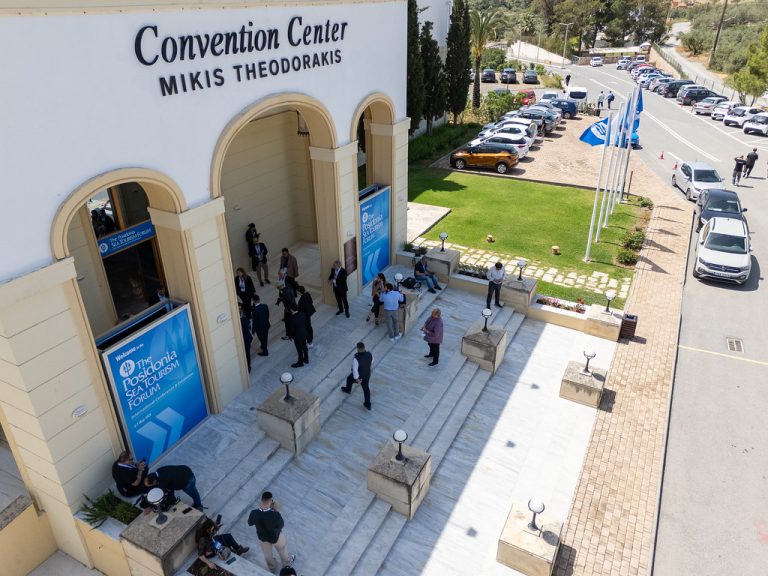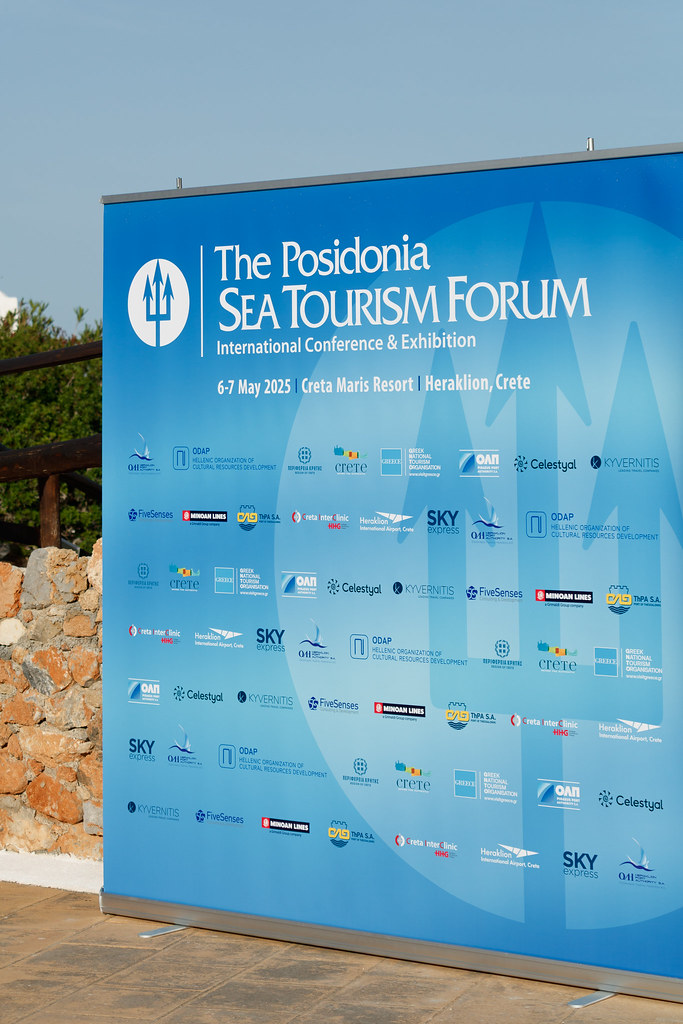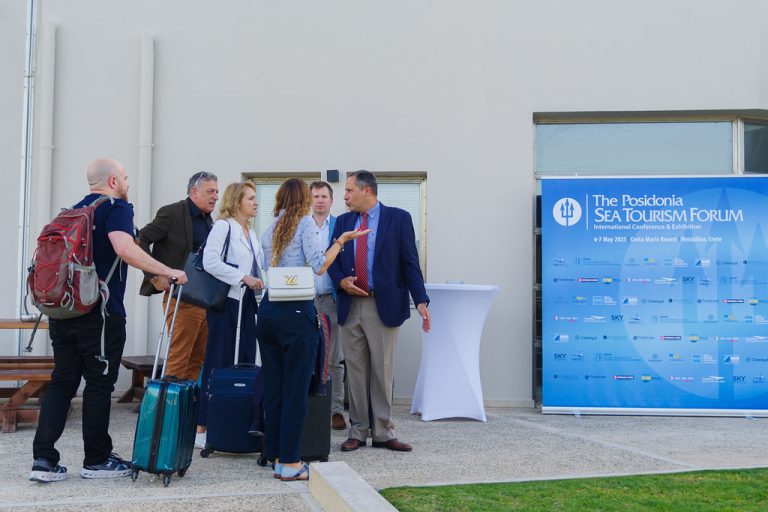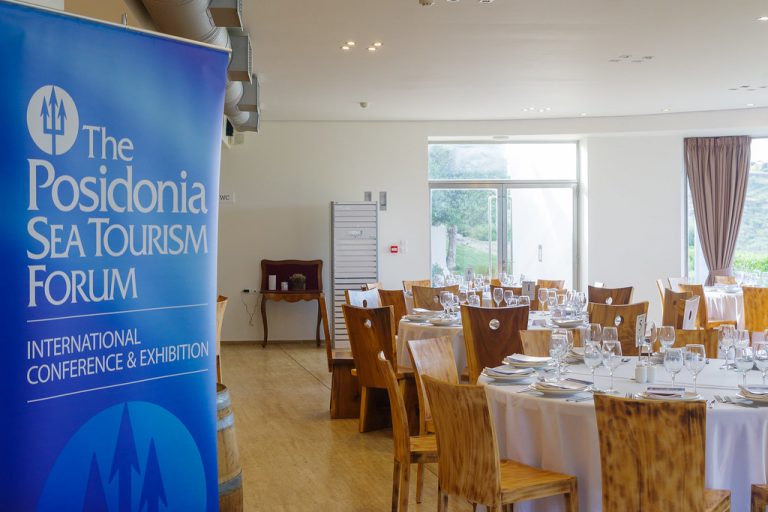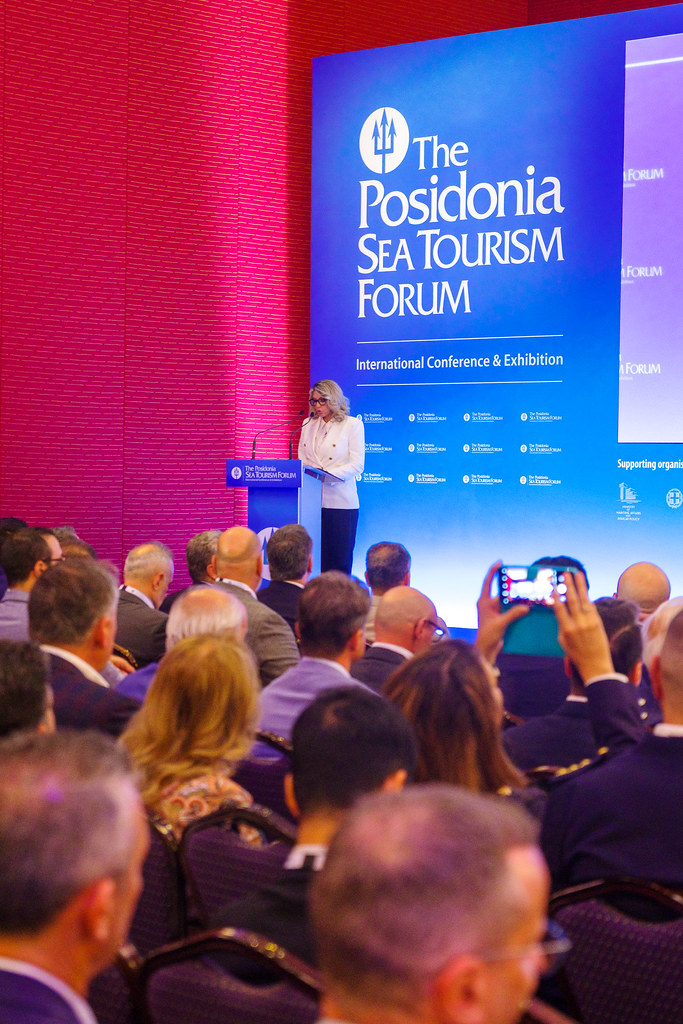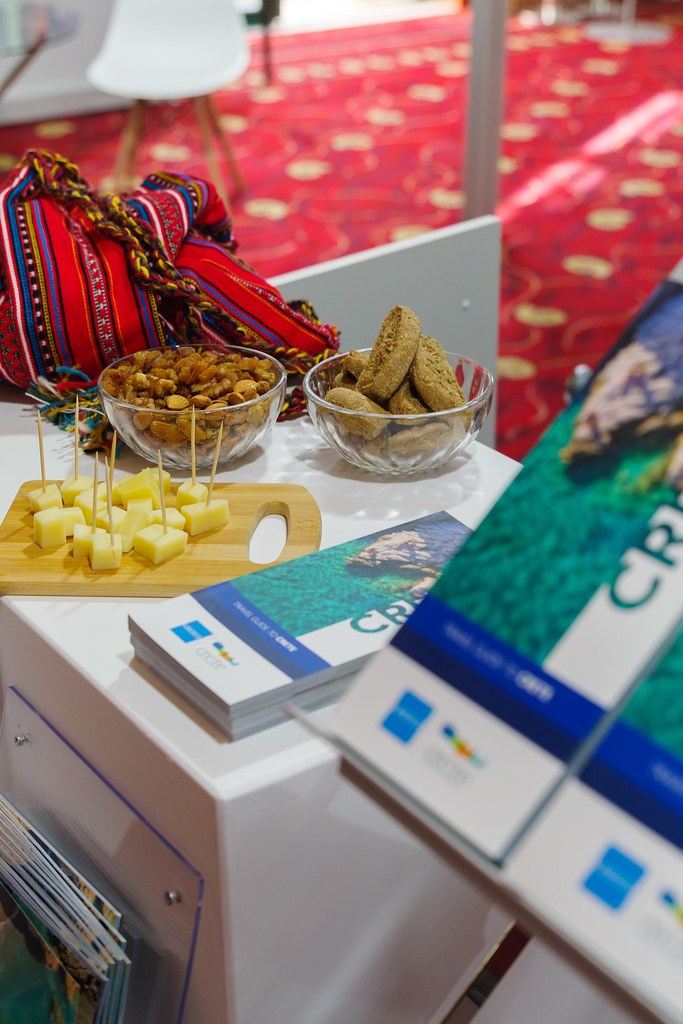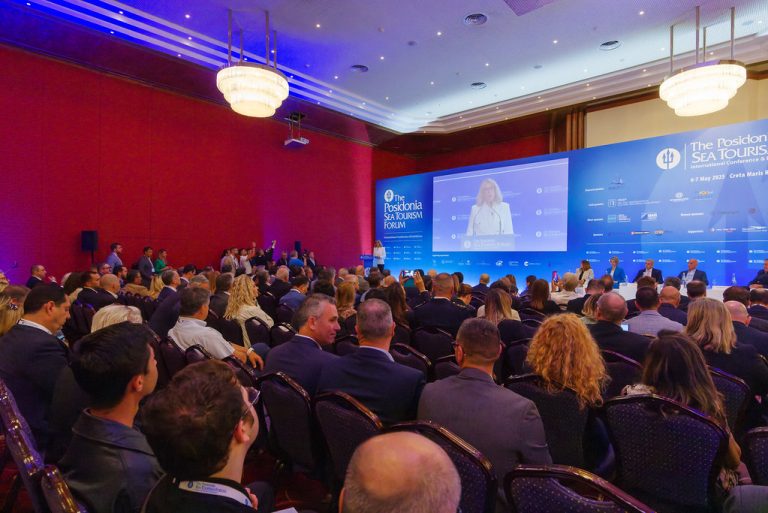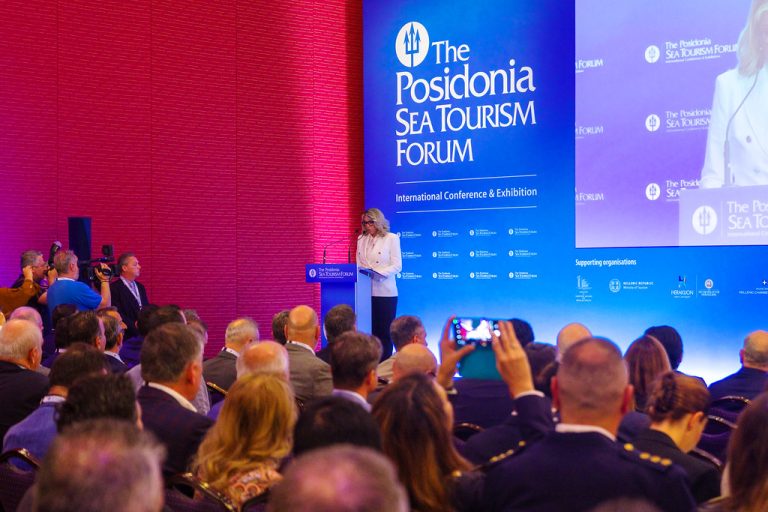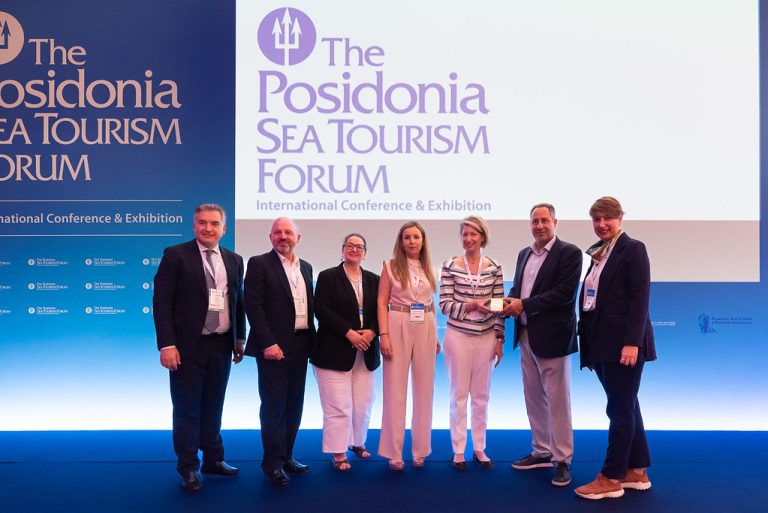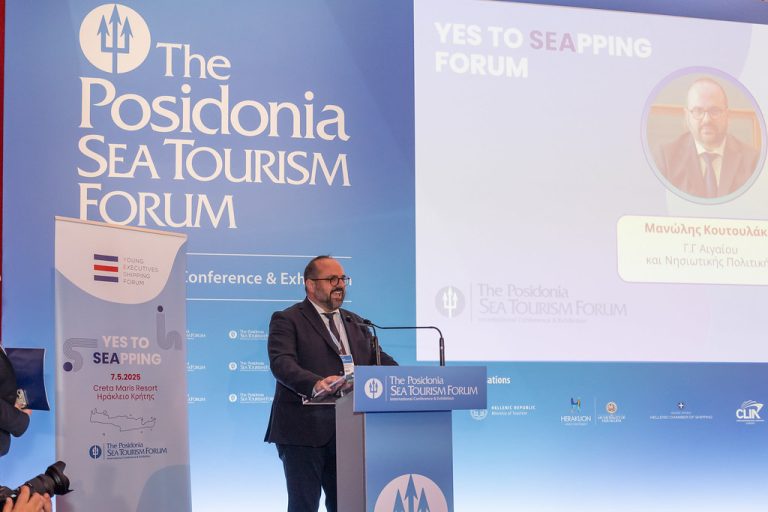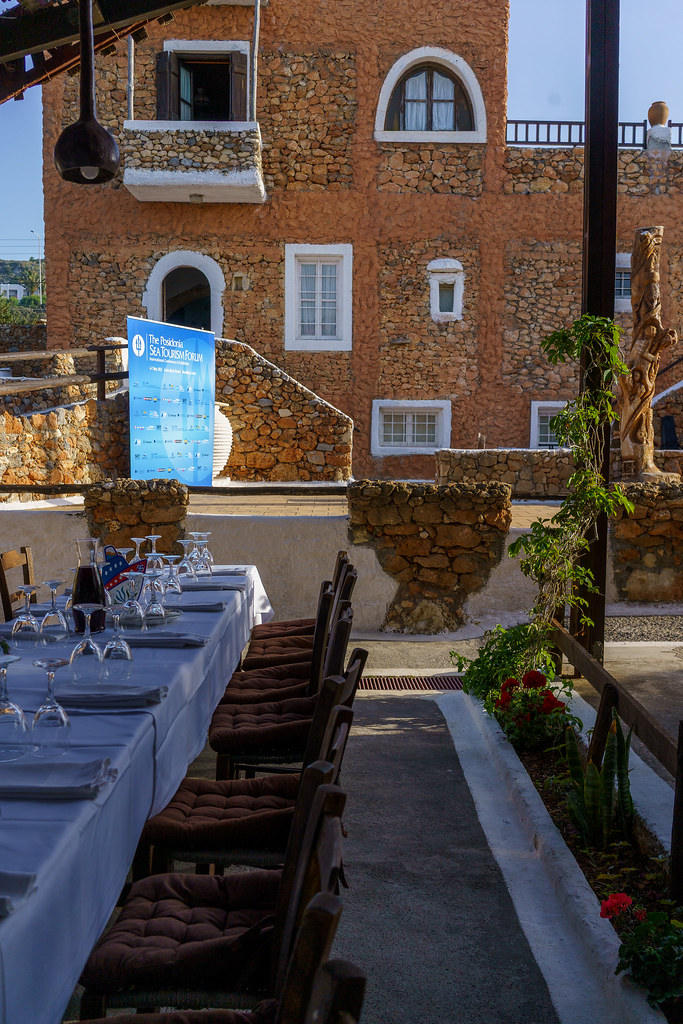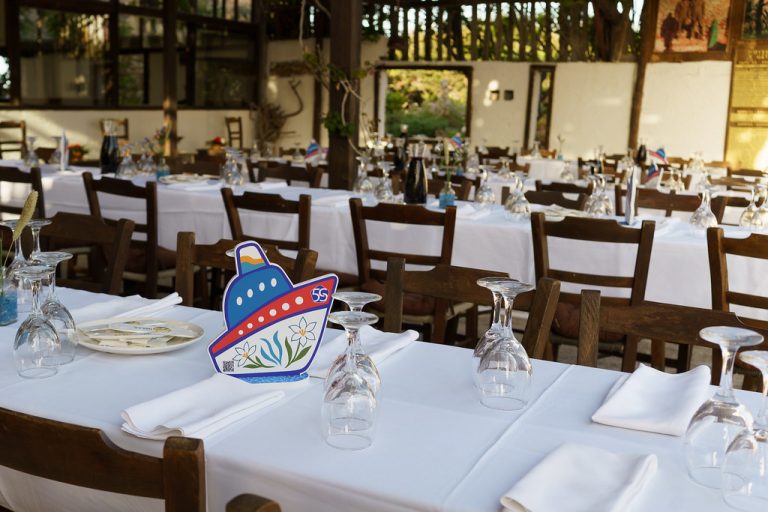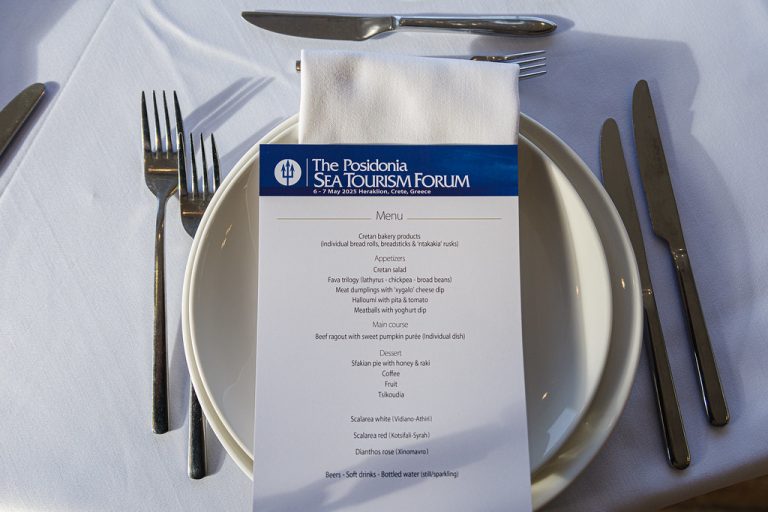PSTF: The Sustainable Future of Mediterranean Cruises
The eighth edition of the Posidonia Sea Tourism Forum (PSTF), one of the most significant events for the cruise and tourism sector in the Mediterranean region, took place in Heraklion, Crete.
Hosted outside Athens for the first time, the forum marked both a symbolic and operational turning point, attracting over 200 cruise executives, port authorities, tourism operators, and policymakers who shared a common goal: envisioning a more sustainable future for sea-based tourism. The overarching theme was: “The Mediterranean: an imperative need for new marquee ports and destinations,” reflecting the urgency of balancing growth, quality of tourist experience, and environmental and social impact.
Posidonia Sea Tourism Forum
Posidonia Sea Tourism Forum
The opening session was led by high-level institutional speakers, including Minas Papadakis (CEO of Heraklion Port Authority), Anna Karamanli (Deputy Minister of Tourism of Greece), Stavros Arnaoutakis (Governor of the Region of Crete), and Apostolos Tzitzikostas (EU Commissioner for Sustainable Transport & Tourism).
In his address, Commissioner Apostolos Tzitzikostas highlighted both the opportunities and challenges in the cruise sector. He noted that in 2024 Greece alone recorded nearly 5,500 port calls and around eight million passengers—figures that underscore the sector’s dynamism but also demand reflection on sustainability. According to him, competitiveness and environmental responsibility must go hand in hand to ensure balanced development.
Tzitzikostas also emphasized shifting preferences among younger generations, pointing out that interest in cruises among youth has increased by 55% over the past five years, while their environmental awareness has grown by 32%—a change that, he argued, cannot be ignored and requires concrete responses from the entire industry.
The roundtable “Balancing Growth and Sustainability in Mediterranean Cruise Tourism” delved into core challenges such as visitor congestion, infrastructural strain, and community engagement.
Posidonia Sea Tourism Forum
Posidonia Sea Tourism Forum
Julie Green, CLIA Deputy Director, pointed out that cruises make up only 2% of global tourism yet generate approximately $50 billion in Europe ($2 billion in Greece alone), urging a shift away from misconceptions—highlighting that cruise tourism is among the most regulated and manageable forms of tourism.
Theodora Riga, President of MedCruise and representative of Corfu Port Authority, stressed the importance of transparency and data-driven communication. She noted that only 5% of visitors to Santorini arrive by cruise ships, despite frequent associations with overtourism. She also shared that cruise tourism sustains approximately 1,500 jobs annually in Corfu.
Chris Theofilides, CEO of Celestyal Cruises, called for intelligent flow management, explaining that the issue is not the number of visitors but the arrival concentration during peak hours. He emphasized the role of collaboration between port authorities, operators, and smart technologies in delivering more balanced tourism experiences.
Kerry Anastassiadis, representing MSC Group, concluded by highlighting the need for a systemic approach to capacity management, community involvement, and development of alternative destinations. She noted that ports like Mykonos and Santorini have already adopted advanced berth allocation systems, and stressed that cooperation is key to sustainable cruise tourism.
Posidonia Sea Tourism Forum
Posidonia Sea Tourism Forum
The following session explored the evolution of the cruise port concept. In particular, there was growing interest in the model of private islands, which offer controlled experiences integrated with the local context. Marcus Puttich of TUI Cruises highlighted the potential of this model in the Arabian Sea, provided that it respects local culture and territory. Ana Karina Santini of Royal Caribbean noted that while the model has proven effective in the Caribbean, it faces obstacles in Europe. Sandi Weir of NCLH described the benefits seen in the Bahamas and Belize, where new jobs have been created for local technicians and engineers. Next, the panel dedicated to small-ship cruising highlighted the growth of boutique cruise lines, which can offer personalized itineraries and access smaller ports. Representatives from Ritz-Carlton Yacht Collection, Star Clippers, Crystal Cruises, Explora Journeys (MSC), and Variety Cruises participated.
During the event, Governor Stavros Arnaoutakis expressed the region’s ambition, emphasizing that the forum represented an important opportunity for Crete. He pointed out that, thanks to the island’s modern infrastructure and rich cultural heritage, Crete is well positioned to establish itself as a sustainable cruise hub in the Mediterranean.
The second day of the Posidonia Sea Tourism Forum in Heraklion, Crete, addressed some of the most pressing challenges facing cruise tourism in the Mediterranean. The discussion focused on how ports designed for a different era can keep pace with the 21st-century cruise ships and the millions of tourists they carry each year. Industry leaders, port operators, and local authorities discussed infrastructure bottlenecks, pressures on local communities, and the need for closer alignment between cruise lines and destinations.
Posidonia Sea Tourism Forum
Posidonia Sea Tourism Forum
During the panel “Cruise Ports: Can Infrastructure Keep Up with Demand?”, key topics were addressed, including port suitability, berth availability, and integration with local communities. Manolis Alevropoulos, Vice President of Marine Operations at Celebrity Cruises (Royal Caribbean Group), emphasized that many ports were designed for ships from fifty years ago, while today’s vessels are completely different. He added that infrastructure upgrades are needed across the board, but such developments must go hand in hand with support for local communities. This includes implementing waste management technologies, freshwater production systems, and the use of clean energy, leveraging the Mediterranean’s natural resources such as sun, wind, and sea.
Isabelle Côté, a consultant for Virgin Voyages, highlighted the urgency of short-term solutions, advocating for smart renovations and creative adaptations to ease pressure on ports while waiting for more extensive infrastructure investments. She also stressed the importance of rethinking the traveler’s experience—transforming passengers into more mindful explorers.
Aziz Güngör, Regional Director East Med Ports at Global Ports Holding, added that beyond technology, meaningful local engagement and regulatory simplification are essential, along with a strong sense of environmental responsibility. Minas Papadakis, CEO of the Heraklion Port Authority, spoke openly about the transformation underway in Greek ports, which are evolving into not only passenger and cargo hubs but also energy hubs. He emphasized the need for substantial investment and an updated regulatory framework. Papadakis also stressed the importance of earning the trust of local communities—viewed as “shareholders” of the port—and announced the planned introduction of penalties for cruise lines that cancel reserved berths, a practice that disrupts planning and negatively impacts the local economy.
Posidonia Sea Tourism Forum
Posidonia Sea Tourism Forum
Gianluca Suprani, Senior VP of Port Development at MSC Cruises, observed with pragmatism that today, “it’s easier to build a ship than a port,” emphasizing the importance of initiatives such as Onshore Power Supply (OPS) and transparent berth allocation systems. He highlighted the need for better coordination with local authorities to avoid congestion and ensure a high-quality experience for passengers.
A significant moment of the day was the announcement of a new two-year strategic partnership between the Posidonia Sea Tourism Forum and MedCruise. Theodore Vokos, Managing Director of Posidonia Exhibitions, explained that MedCruise had been among the first organizations to believe in the forum’s mission, and that the formalization of this collaboration would strengthen joint efforts in future editions.
The second panel, dedicated to the dialogue between cruise lines and destinations, focused on the importance of genuine cooperation between the two sectors. Ligia Balea, Shore Excursions Product Manager at Carnival Cruise Lines, highlighted how well-curated cultural experiences can both delight passengers and bolster local economies—particularly when local suppliers are actively involved in the design of excursions.
Dimitris Bekos, Head of Greece, Cyprus, Egypt & UAE at Intercruises, echoed concerns from residents about environmental impact and the potential “cultural dilution” caused by the simultaneous arrival of thousands of tourists. He proposed community-centered tours as an effective solution. Michele Bosco, Shore Excursion Manager at Princess Cruises, suggested practical measures such as staggering ship arrivals, avoiding port calls during local events, and extending the duration of excursions to better distribute tourist flows throughout the day.
Posidonia Sea Tourism Forum
Posidonia Sea Tourism Forum
Posidonia Sea Tourism Forum
Alessandro Carollo, Associate VP of Government Relations at Royal Caribbean Group, identified a structural cause of the difficulties: the lack of a unified voice within destinations, where tourism bodies, port authorities, and municipalities are often not aligned. He emphasized the need to achieve internal coherence before effectively collaborating with cruise lines. Finally, Thanos Pallis, Professor of Maritime and Port Economics at the University of Piraeus, closed by urging stakeholders to move beyond slogans and focus on shared, accessible, and understandable data. Only in this way, he said, can the industry shift from emergency management to long-term strategic planning.
In the afternoon, parallel sessions addressed specific topics such as coastal and short-range navigation with a focus on ecological practices, the development of nautical infrastructure for the yachting and marina sector, and the involvement of youth in maritime education through the YES to Sea Tourism forum—highlighting the crucial role of new generations for an innovative and sustainable future of the industry.
Organized by Posidonia Exhibitions, with the support of the Region of Crete and the Heraklion Port Authority, the Posidonia Sea Tourism Forum confirmed its role as a strategic platform for cross-sector dialogue. Institutional and commercial partners such as CLIA, MedCruise, FCCA, ENIT, ODAP, the Piraeus Port Authority, and the Hellenic Chamber of Shipping contributed to the success of the event.
The 8th Posidonia Sea Tourism Forum delivered a clear message: the Mediterranean needs vision, cooperation, and innovation to successfully tackle the challenges of 21st-century maritime tourism.
Don’t miss news, updates, and reviews about the cruise world on Cruising Journal.

